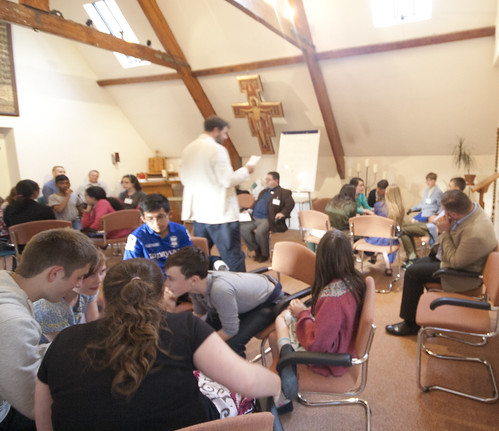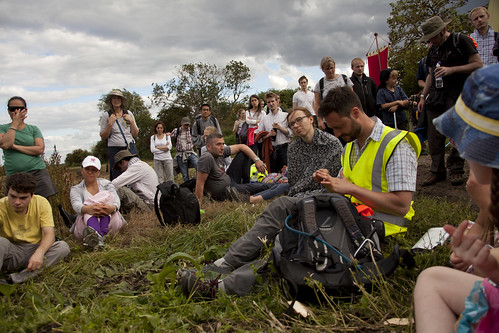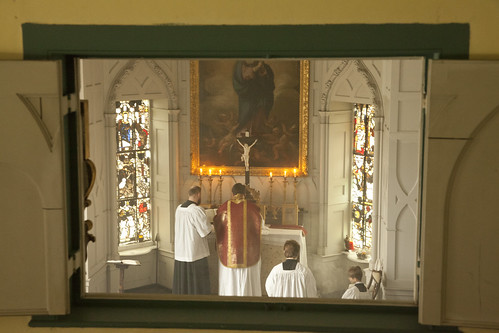Pope Francis' words about 'the great majority' of Catholic marriages being invalid have, it appears, been redacted, in the official transcript of his press conference at the Lateran on Thursday, to read 'some' Catholic marriages. Assuming that the Holy Father had a hand in this, or at least allowed it to happen, we should understand it as his second thoughts. He acknowledges, in some sense, that what he said the first time was not right, or not wise. This ought to mean that the people criticising us for disagreeing with the Pope should now eat their words, since he agrees with us in disagreeing with what he said, but I don't suppose many of them will look at it that way.
What we can all agree about is that there is a crisis of marriage. I would also like to draw out one aspect of what the Pope said, or implied, which I also agree with: that the problem is not that people simply don't know, intellectually, what marriage is, but that, deep down, that understanding is not part of them. 'They say it', the Pope says. But in some sense, they don't grasp it. The problem, then, is not, as many people have suggested, a deficiency of marriage preparation. A course of talks could catechise couples; it cannot give them a culture or virtue.
The problem is one of formation, not knowledge. That problem manifests itself not in the nullity of marriages, but in their failure.
Of course good marriage preparation would be a good idea. What would make even more difference would be if the couples made a good confession immediately before the wedding. Getting married in a state of grace is necessary to receiving the graces of the sacrament, in marriage as with Holy Communion and Holy Orders. Perhaps bringing couples to confession should be a priority for marriage preparation. What that means, of course, in the context of couples who are mostly cohabiting before marriage, is that the marriage prep. should not be about catechesis so much as about bringing about a conversion of life. Not patting them on the back and saying, we don't condemn, and anyway you are getting married now, but rather saying: if you are to form a Catholic family, you need to straighten your lives out.
Something else worth saying is that if we suspect there is a crisis of invalidity in marriage, the Church must react as she would to a crisis of invalidity with Holy Orders or Baptism: not by bewailing the problem, but by making the sacrament valid. Call in the couples and get them to go through a conditional form of marriage with the right intentions; don't just wait for them to divorce and say, oh well it was probably invalid. The fact that this option is not being discussed suggests to me that the idea of invalidity is not being used, in this debate, in a serious way, to mean what it actually means. Invalidity is not just a handy excuse to get remarried. It is a defect in a sacrament which means that it hasn't worked. If it's not worked, it's not had its good effects. In that case it should be - and could easily be - sorted out. If, that is, we care about Catholics' marriages.
Support the work of the LMS by becoming an '
Anniversary Supporter'.
 Please pray for Anthea Craigmyle, who died peacefully, this morning, aged 83.
Please pray for Anthea Craigmyle, who died peacefully, this morning, aged 83.
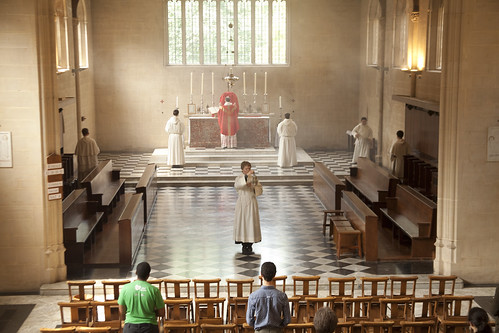


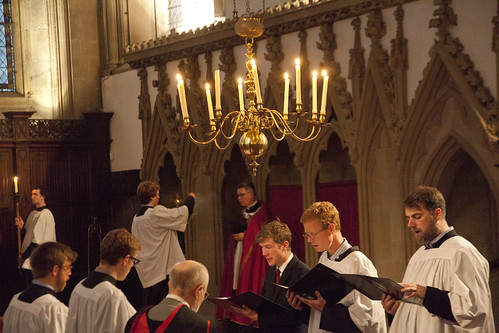
 This supports Anglican and other ordained ministers who become Catholic, frequently losing their livlihoods in doing so. Go and support them through their website here.
This supports Anglican and other ordained ministers who become Catholic, frequently losing their livlihoods in doing so. Go and support them through their website here. The Pope's remarks on contraception on the aeroplane back from the Philippines were an extreme example of what has become a characteristic of this papacy. Without his words moving one iota from the teaching of the Church, and indeed reaffirming it, what came across was something appearing to undermine the actual living out of that teaching. Contraception is not just bad, it is - says the Holy Father - reminiscent of the ideological endeavours of the Hitler Youth. The example of a mother for whom some kind of ethical avoidance of pregnancy would be sensible is so extreme that it is impossible to argue with it. And yet somehow the take-home message is that large families are a bad thing. 'Catholics need not breed like rabbits.'
The Pope's remarks on contraception on the aeroplane back from the Philippines were an extreme example of what has become a characteristic of this papacy. Without his words moving one iota from the teaching of the Church, and indeed reaffirming it, what came across was something appearing to undermine the actual living out of that teaching. Contraception is not just bad, it is - says the Holy Father - reminiscent of the ideological endeavours of the Hitler Youth. The example of a mother for whom some kind of ethical avoidance of pregnancy would be sensible is so extreme that it is impossible to argue with it. And yet somehow the take-home message is that large families are a bad thing. 'Catholics need not breed like rabbits.'
